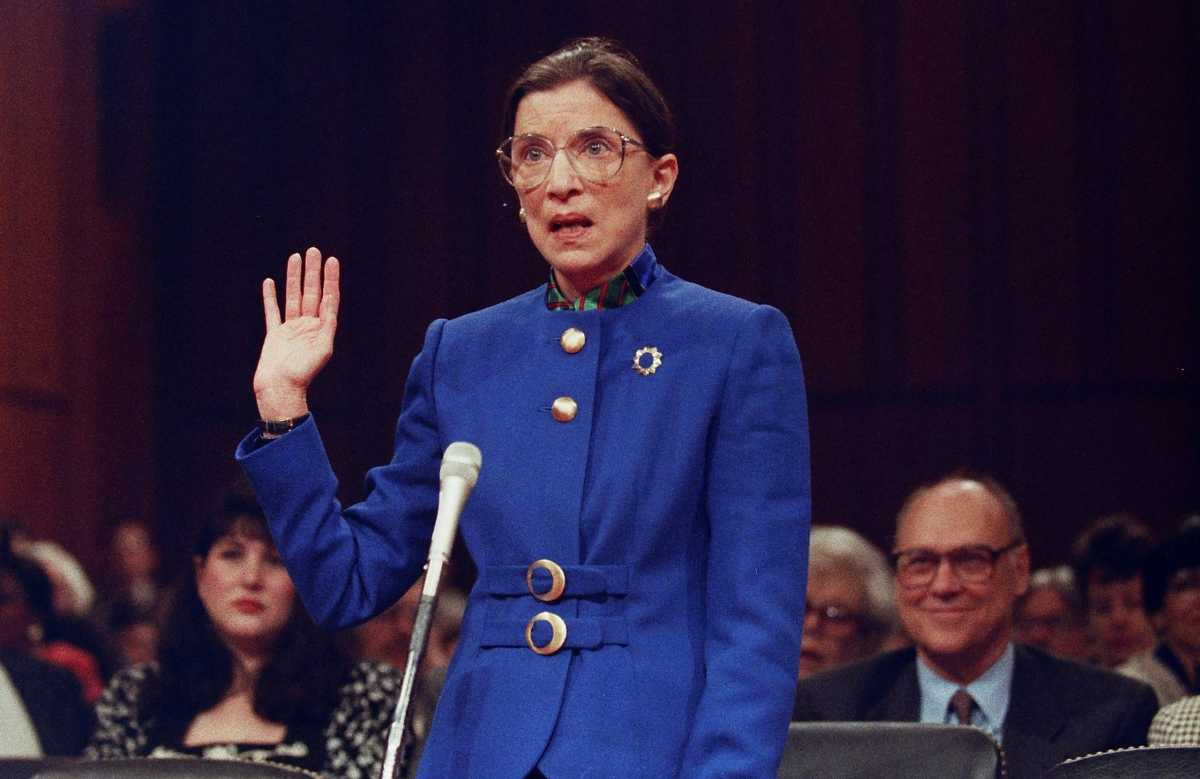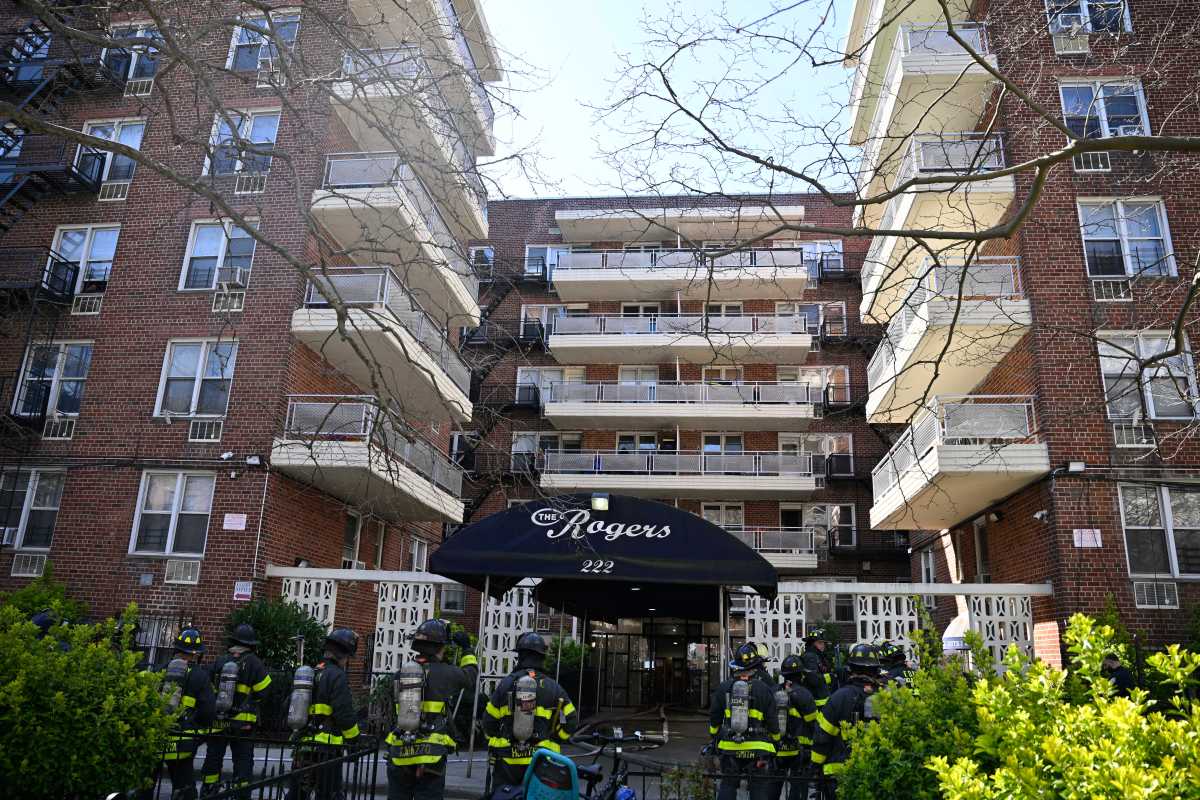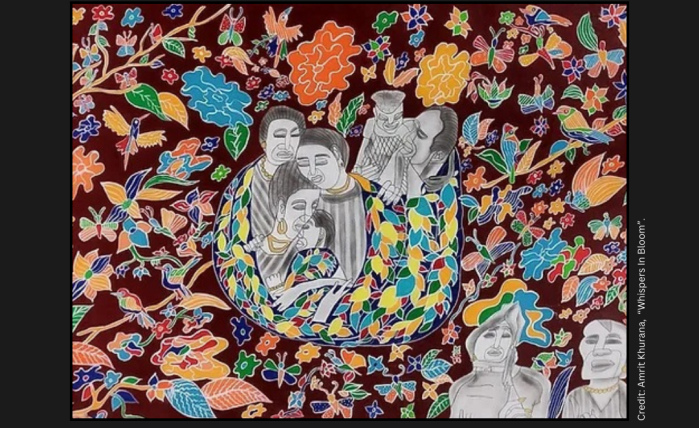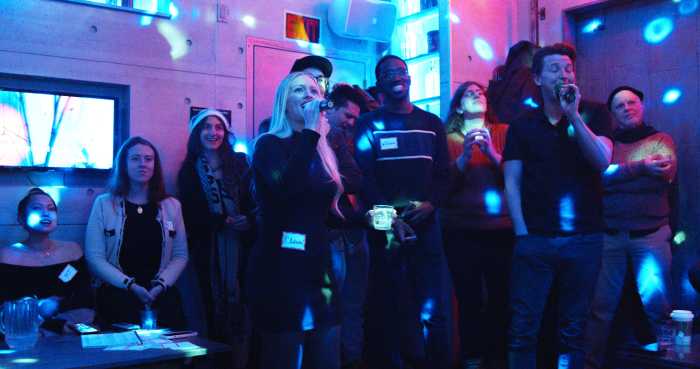BY PAUL SCHINDLER
The Sept. 18 death of Supreme Court Justice Ruth Bader Ginsburg, who served on the nation’s highest bench since her appointment by President Bill Clinton in 1993, is sending shudders through progressive Americans who lionized the uncompromising jurist who earlier in her career had founded the Women’s Rights Project at the American Civil Liberties Union (ACLU).
Ginsburg, who won the moniker Notorious RBG for her staunch opposition to the rightward tilt of the high court in recent years, was 87 and had suffered since 2019 with pancreatic cancer, an illness she had survived an earlier bout of a decade earlier.
LGBTQ rights advocates noted Ginsburg’s consistent support for equal rights advances achieved by the community in decisions dating back to 1996, when the high court struck down a Colorado voter initiative that barred the state or localities from enacting gay and lesbian rights protections.
She would go on to vote with the majority in the 2003 decision striking down sodomy laws, the 2013 decision which threw out the Defense of Marriage Act, the 2015 decision guaranteeing marriage equality nationwide, and this year’s ruling finding that employment discrimination based on sexual orientation and gender identity is barred by the sex discrimination provisions of the 1964 Civil Rights Act’s Title VII.
Alphonso David, the president of the Human Rights Campaign, released a written statement saying, “Today, we lost an unqualified, undisputed hero. She wasn’t just an iconic jurist, Justice Ginsburg was a force for good — a force for bringing this country closer to delivering on its promise of equality for all. Her decades of work helped create many of the foundational arguments for gender equality in the United States, and her decisions from the bench demonstrated her commitment to full LGBTQ equality. She was and will remain an inspiration to young people everywhere, a pop culture icon as the Notorious RBG, and a giant in the fight for a more just nation for all. We extend our deepest condolences to her family and loved ones. What she represented — fairness, justice, and equality for all — we must all continue to fight for. Those principles are not transactional, they are fundamental to our democracy.”
The HRC release noted that Ginsburg. only the second woman to serve on the Supreme Court after Sandra Day O’Connor, graduated at the top of her class at Columbia Law School, was appointed to the Court of Appeals for the District of Columbia Circuit in 1980 by President Jimmy Carter after having co-founded the ACLU’s Women’s Rights Project, where she served as general counsel, eight years earlier.
Rea Carey, the executive director of the National LGBTQ Task Force, also released a written statement, saying, “Today we have lost a giant of justice, a champion for equality and progress. Justice Ginsburg was an American hero and pioneer, a voice for so many marginalized people, leaving behind a legacy of courage, tenacity, and historic impact in creating a better country and a better world for all of us. We are all so grateful for all Justice Ginsburg has done for LGBTQ people, for women, for our ability to control our own bodies, for all that seek to move freedom forward in this country.”
Unspoken in either David or Carey’s comments was the terror gripping many people that Ginsburg’s passing may offer President Donald Trump the opportunity to appoint a third justice to the high court, after having already won confirmation for Neil Gorsuch and Brett Kavanaugh.
Progressives on the court were already a four-member minority with severe constraints facing them in winning an ally or two from the conservative bloc on critical issues. In that context, the votes of Gorsuch and Chief Justice Roberts in support of this summer’s Title VII employment nondiscrimination victory for the LGBTQ community were pleasant surprises.
The Roberts court, however, has more often handed down significant conservative decisions, including the 2010 Citizens United decision that opened the door for corporations, special interests, and wealthy individuals to spend unlimited amounts of money in elections and the 2014 Hobby Lobby ruling that came to the extraordinary conclusion that certain closely held corporations could assert the right to a religious exemption from laws generally applicable to the public.. The Hobby Lobby decision, on which Ginsburg wrote a stinging dissent, is seen as particularly alarming in the context of LGBTQ rights, where a wide array of right-wing groups have claimed the right to a religious opt-out from compliance.
In her dissent, Ginsburg wrote, “The court’s expansive notion of corporate personhood invites for-profit entities to seek religion-based exemptions from regulations they deem offensive to their faiths.”
Reproductive rights are undoubtedly one of the key areas of law suddenly plunged into even greater uncertainty with Ginsburg’s death.
Kevin Jennings, the CEO of Lambda Legal, that won its share of the LGBTQ high court victories that Ginsburg voted for, came closest to expressing the despair felt among LGBTQ people and their progressive allies upon hearing the news of her death.
In a written statement, Jennings said, “Today, the United States lost an irreplaceable giant. Justice Ruth Bader Ginsburg made history as both an advocate and a Justice, striking down barriers not only for women but also for LGBTQ people and for others who for too long have been denied equal justice under the law.
“Throughout her entire legal career, including her 27 years on the Supreme Court, Justice Ginsburg fought for the rights of those on the margins. From her time as a lawyer with the ACLU Women’s Rights Project to her years on the Supreme Court, Justice Ginsburg spoke with a clear and strong voice against inequality and gender discrimination. A long-standing ally of the LGBTQ community, her unwavering support, both on and off the bench, was a testament to her commitment to equality for all people.
“We at Lambda Legal are devastated tonight. We have lost a friend, a hero, a champion with the passing of Justice Ginsburg. This physically-tiny woman has left an enormous legacy in the fight for justice and a huge hole in our hearts. We pledge to carry on our piece of the fight she so valiantly led in her eight decades on this planet in her memory until equal justice under the law is a reality for everyone in this nation.”
Should Trump and a Republican Senate moved forward in an attempt to put a new justice on the court with just weeks until the election that will decide whether the president will get a second term — Majority Leader Mitch McConnell wasted no time saying, “President Trump’s nominee will receive a vote on the floor of the United States Senate” — a political donnybrook is sure to ensue.
In 2016, when Justice Antonin Scalia died suddenly early in the year, McConnell asserted that in the final year of a presidential term the decision on who will sit on the court should be left to the voters in November — refusing even to hold hearings on President Barack Obama’s nomination of Judge Merrick Garland, who like Ginsburg sat on the DC Court of Appeals.
Now McConnell claims the situation is different since both the White House and the Senate are in the hands of the same party, unlike in 2016 when power was divided. Whether the Democrats can make the case to Americans that such sophistry is a hypocritical and naked power grab remains to be seen.
It’s little surprise that Ginsburg was such an early and staunch ally to the LGBTQ community on the high court. As a professor at Rutgers University Law School from 1963 to 1972, she co-founded Women’s Rights Law Reporter, the first law journal in the US to focus exclusively on women’s rights.
As general counsel at the ACLU’s Women’s Rights Project, Ginsburg argued six gender discrimination cases before the Supreme Court, winning five. In 1971, the court’s Reed v. Reed decision extended the equal protection guarantees of the 14th Amendment to women.
In a statement from the ACLU, its executive director, Anthony D. Romero, emphasized Ginsburg’s achievements on women’s rights, writing, “During the 1970s, Ginsburg led the ACLU in a host of important legal battles, many before the Supreme Court, that established the foundation for the current legal prohibitions against sex discrimination in this country and helped lay the groundwork for future women’s rights advocacy. By 1974, the Women’s Rights Project and ACLU affiliates had participated in over 300 sex discrimination cases; between 1969 and 1980, the ACLU participated in 66 percent of gender discrimination cases decided by the Supreme Court.”
This article first appeared on our sister publication Gay City News.




































